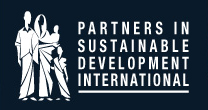GENDER EQUALITY IN BANGLADESH - 3RD IN A 3 PART SERIES
Bangladesh, a land known for its rich cultural heritage and vibrant history, has also been grappling with gender inequality for decades. Despite significant progress in various sectors, women in Bangladesh continue to face numerous challenges, ranging from limited access to education and healthcare to underrepresentation in leadership roles. In this blog post, we delve into the various facets of women inequality in Bangladesh and shed light on the pressing issues that demand attention and action.
Education and Employment Disparities:
In Bangladesh, education remains a critical area where gender inequality persists. While the country has made remarkable strides in improving access to education, there is still a considerable gap between boys and girls in terms of enrollment and retention rates. Traditional norms and economic factors often lead to early marriage, forcing many girls to abandon their education prematurely. Additionally, a lack of adequate infrastructure and safe transportation deters girls from attending school, especially in rural areas.
Similarly, in the realm of employment, women in Bangladesh face significant challenges. Despite their increasing participation in the workforce, they are often confined to low-paying and low-skilled jobs. The gender wage gap further exacerbates the issue, with women earning considerably less than their male counterparts for the same work.
Violence against Women:
One of the most distressing aspects of women inequality in Bangladesh is the prevalence of violence against women. Domestic violence, sexual harassment, and acid attacks continue to be pressing issues affecting women's safety and well-being. Despite legislative measures and awareness campaigns, cultural norms and inadequate enforcement of laws perpetuate a culture of silence, making it challenging for victims to seek justice and support.
Child Marriage and Women's Health:
Child marriage remains a persistent problem in Bangladesh, with girls as young as 15 or even younger being forced into marriage. Early marriage deprives young girls of educational and career opportunities, and it also poses significant health risks due to early pregnancies and childbirth. This perpetuates a cycle of poverty and perpetuates inequality.
Healthcare disparities are another critical concern for women in Bangladesh. Access to quality healthcare, especially in rural areas, remains limited. Women's reproductive health, including family planning and maternal care, deserves greater attention and investment to ensure a healthier and more equitable society.
Political Underrepresentation:
Despite having a female Prime Minister since 2009, women's political representation in Bangladesh is relatively low. While there have been steps taken to promote gender equality in politics, the number of women in parliament and other decision-making bodies remains insufficient. Greater representation of women in politics is essential to address issues that specifically affect women and to advocate for policies that promote gender equality.
PSDI and PEP are Empowering Women for a Brighter Future:
PSDI and our partners in Bangladesh, PEP, have a focus on empowering women by giving them an income generating activity of their own as we understand how vulnerable women are in poor families. As a result of earning income for her family, women earn respect and gain value within their community. This can, in turn, reduce the violence they may be subject to.
Our health education programs focus on women and children, particularly newborns, impacting the child mortality rates. Our health workers also address child marriage and other important cultural issues that impact health.
We build primary schools in the areas we serve to give young boys and girls access to education, a key to lifting them out of poverty.
Women inequality remains a significant challenge in Bangladesh, hindering the nation's overall progress and development. By acknowledging and addressing these issues head-on, we can work towards creating a more equitable society where women have equal access to education, healthcare, and opportunities. It is only through collective efforts and sustained commitment that Bangladesh can truly unleash the potential of its women, propelling the nation towards a brighter and more inclusive future.
We are doing our part – won’t you join us?
